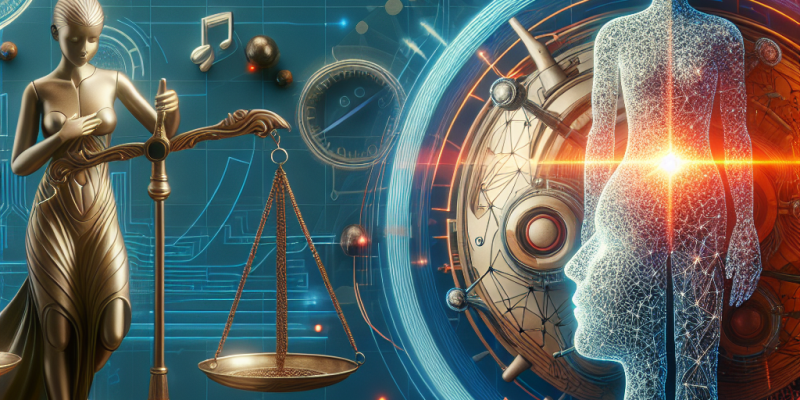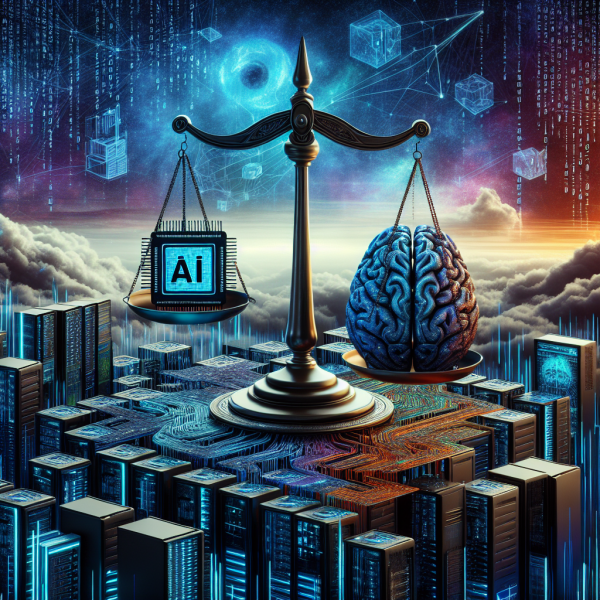Ethics and Innovation: Navigating the Challenges of Generative AI Technology

Introduction
In the rapidly evolving world of technology, few innovations have captured the imagination—and concern—of experts and laypersons alike quite like generative artificial intelligence (AI). From art and music to text and data synthesis, generative AI can produce content that often blurs the line between human creativity and machine intelligence. While the potential benefits of generative AI are immense—ranging from automated content creation and personalized learning to drug discovery and climate modeling—the ethical challenges it presents are equally significant. As society embraces this transformative technology, it becomes crucial to navigate the ethical terrain surrounding generative AI to ensure its responsible and equitable use.
The Promise of Generative AI
Generative AI refers to algorithms that can produce new content based on input data. Technologies such as OpenAI’s GPT-3, DALL-E, and Google’s DeepMind demonstrate the ability of machines to generate coherent text, articulate images, and even compose music. This capability has the potential to revolutionize various industries:
-
Creative Arts: Artists and creators can collaborate with AI to enhance their work, leading to new forms of expression.
-
Healthcare: Generative models can assist in drug discovery by simulating molecular interactions and predicting therapeutic outcomes.
-
Education: Personalized educational tools powered by generative AI can cater to individual learning styles, making knowledge more accessible.
- Business: Companies can leverage generative AI for data analysis, marketing content creation, and customer service automation, increasing efficiency and productivity.
Despite these promising applications, the deployment of generative AI technology raises important ethical questions.
Ethical Challenges of Generative AI
1. Authenticity and Attribution
One of the foremost concerns is the question of authorship. When a piece of music, artwork, or text is generated by an AI, who owns the rights? Traditional copyright laws often do not accommodate works produced by machines, leading to potential legal and moral ambiguities. Additionally, the authenticity of AI-generated content can mislead audiences, creating an illusion that it is human-created. This dilemma challenges our understanding of creativity and originality, leading to a need for clear guidelines.
2. Misinformation and Manipulation
Generative AI can be weaponized to create deepfakes, spread disinformation, or fabricate convincing narratives, undermining trust in media and information. The potential for misuse in news dissemination, political campaign manipulation, and identity theft poses a stark challenge to democratic values and societal trust. As such, ensuring the integrity of information becomes paramount in the age of generative AI.
3. Bias and Discrimination
AI models learn from vast datasets that may contain inherent biases. If not carefully managed, generative AI systems can perpetuate or even exacerbate these biases in their outputs, leading to discrimination and societal inequities. This raises ethical questions about fairness and accountability in AI systems and underscores the need for diverse datasets and rigorous testing.
4. Privacy Concerns
Generative AI techniques require vast amounts of data, often including personal information. The collection and use of this data raise significant privacy concerns. Mismanagement of personal data can lead to breaches, unauthorized surveillance, and exploitation, prompting a call for stricter regulations governing data usage and user consent.
5. Economic Displacement
As generative AI automates content creation and various job functions, there are fears of widespread job displacement across creative industries, journalism, and customer service roles. The ethical implications of disrupting livelihoods necessitate proactive measures to ensure that affected workers can transition into new roles and that society is prepared to support these shifts.
Navigating the Ethical Challenges
Addressing the ethical dilemmas posed by generative AI technology requires a multifaceted approach involving policymakers, technologists, ethicists, and the public. Here are several key strategies for navigating these challenges:
1. Creating Robust Frameworks and Regulations
Governments and organizations must establish comprehensive legal frameworks that address intellectual property, data privacy, and accountability in AI-generated content. Fair and ethical guidelines will help mitigate risks and ensure that the benefits of AI are broadly shared.
2. Promoting Transparency and Accountability
AI organizations need to embrace transparency in their processes, especially regarding how models are trained and the data used. Developers should also be held accountable for the technology they create, ensuring adherence to ethical standards and responsible development practices.
3. Enhancing Public Awareness and Education
Public understanding of generative AI and its implications is essential. Educational initiatives can equip individuals and communities with the knowledge to navigate technology responsibly, fostering a culture of critical thinking about AI-generated content.
4. Encouraging Ethical AI Development
AI researchers and developers should prioritize ethical considerations in their work. Collaborative efforts between technologists and ethicists can help integrate ethical thinking from the design phase and encourage the development of AI systems that are fair, inclusive, and non-discriminatory.
5. Supporting Workforce Transition
As generative AI reshapes job landscapes, programs that facilitate retraining and upskilling can help workers transition to new roles in a technology-driven economy, alleviating concerns about economic displacement.
Conclusion
Generative AI holds immense potential to transform creativity, industry, and society. However, as we navigate this new frontier, it is imperative to address the ethical challenges that accompany its rise. By fostering dialogue, promoting responsible innovation, and establishing robust regulatory frameworks, we can harness the power of generative AI while safeguarding the values that underpin our society. The future of technology is not predetermined; it is a collective effort to ensure that innovation serves humanity, rather than undermining it.














